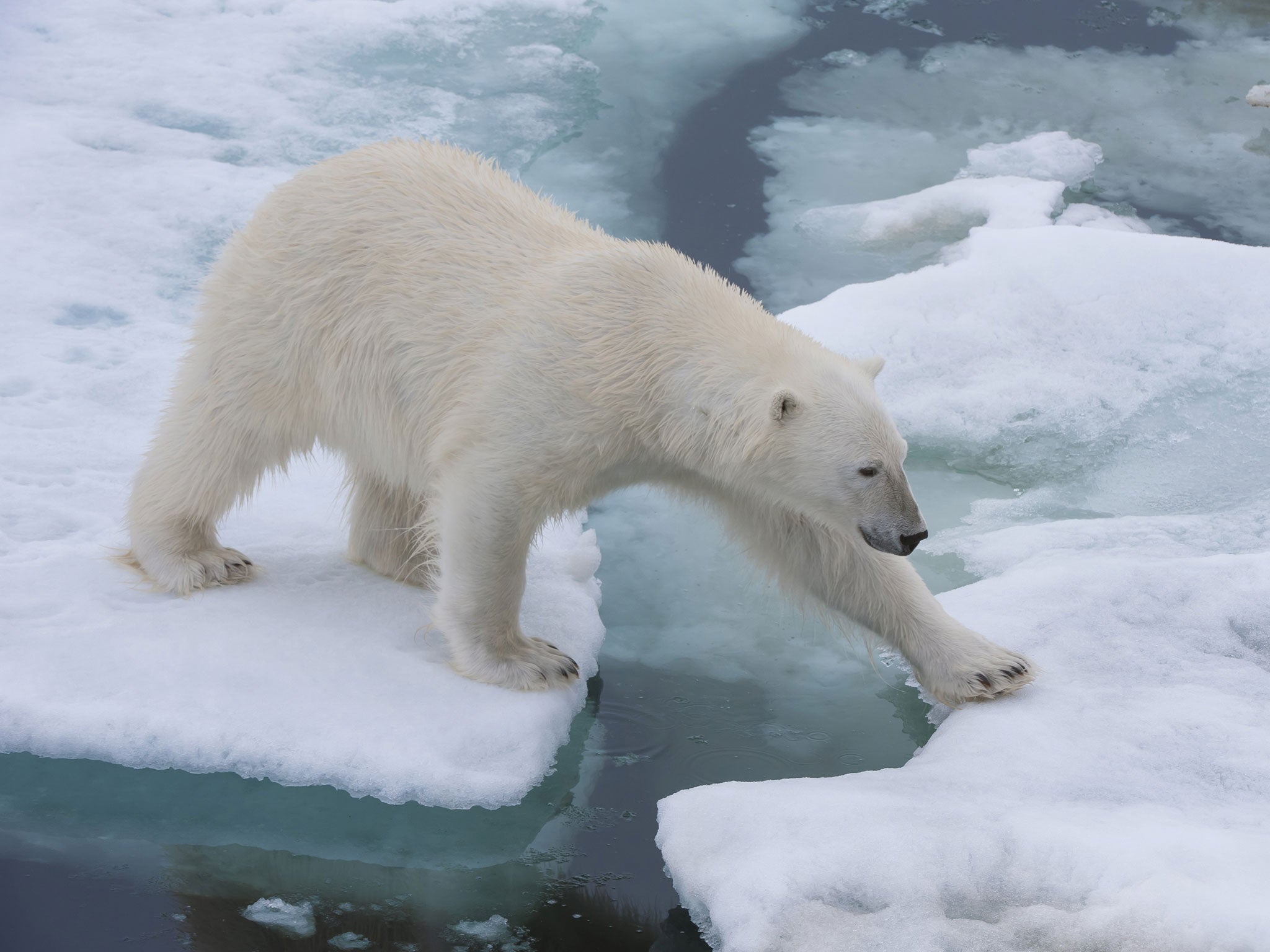Scientists ‘95 per cent certain’ that climate change is man-made
UN panel estimates sea levels could rise by 2ft 8in by the end of the century in latest draft report

Your support helps us to tell the story
From reproductive rights to climate change to Big Tech, The Independent is on the ground when the story is developing. Whether it's investigating the financials of Elon Musk's pro-Trump PAC or producing our latest documentary, 'The A Word', which shines a light on the American women fighting for reproductive rights, we know how important it is to parse out the facts from the messaging.
At such a critical moment in US history, we need reporters on the ground. Your donation allows us to keep sending journalists to speak to both sides of the story.
The Independent is trusted by Americans across the entire political spectrum. And unlike many other quality news outlets, we choose not to lock Americans out of our reporting and analysis with paywalls. We believe quality journalism should be available to everyone, paid for by those who can afford it.
Your support makes all the difference.Scientists are more certain than they have ever been that humans are causing climate change and believe that sea levels could rise by up to 2ft 8in by the end of the century.
These are among the key findings likely to be published next month in the most authoritative and comprehensive report ever conducted into climate science - the UN Intergovernmental Panel on Climate Change’s (IPCC) fifth assessment, known as AR5.
According to a draft of the report, the certainty that humans are the main cause of climate change has risen to 95 per cent, from 90 per cent in the previous - fourth - assessment six years ago. This, in turn, was a significant increase on the 66 per cent certainty reached in 2001’s third assessment and just over 50 per cent in 1995.
With every IPCC report there is a key phrase that encapsulates the latest consensus on climate change, which scientists wrangle over for months.
According to a leaked copy of the draft, the key phrase in the forthcoming report will say: “It is extremely likely that human influence on climate caused more than half of the observed increase in global average surface temperature from 1951 to 2010.”
“There is high confidence that this has warmed the ocean, melted snow and ice, raised global mean sea level and changed some climate extremes,” adds the draft, which could be changed before the final version is published in Stockholm in September.
The draft projects that seas will rise by between 29cm and 82cm (11.4 to 32.3 inches) by the end of the century, while greenhouse gas emissions continue to soar.
The latest in a series that began in 1990 and last reported in 2007, AR5 has 840 main authors recruited from 38 of the IPCC’s 195 member countries, with British and American scientists making the biggest contribution.
At more than 3,000 pages, the report is so big that it will be released in three parts over the next 14 months. The first part covers the physical science of climate change. The second instalment will concentrate on the impacts of climate change and how to adapt to them, while the third will examine ways to curb the warming.
The report will also explain why global temperatures, while still increasing, have risen more slowly since the late 1990s despite accelerating increases in the greenhouse gas emissions widely thought to be responsible for climate change.
The draft report says there is “medium confidence” that the slowing of the temperature rise is “due in roughly equal measure” to natural variations in the weather and to other factors affecting energy reaching the earth’s surface. Other factors include an increase in the amount of heat being absorbed by deep oceans.
As with the other IPCC reports, AR5 will be a synthesis of the findings of thousands of peer-reviewed research papers from the past few years. It comes at a crucial time in global climate change politics since it will be the last IPPC report published before the Paris summit in 2015, when the world’s governments have pledged to reach hugely-ambitious and legally-binding targets to reduce their emissions in a bid to limit global warming to 2C, compared to pre-industrial levels.
The report’s authors are being extra cautious with this report after climate sceptics seized on a number of errors in the previous assessment to bolster their case that climate change is greatly exaggerated. The errors included the suggestion that the Himalayan glaciers could melt by 2035.
The key phrase on the likely human influence on climate change in the draft of the latest IPCC assessment strengthens that of 2007’s fourth assessment, which said that “Evidence of the effect of external influences… on the climate system has continued to accumulate since TAR [Third assessment report in 2001]”.
TAR, in turn, concluded in 2001 that “there is new and stronger evidence [than in 1995] that most of the warming observed over the last 50 years is attributable to human activities”. The second assessment report in 1995 said: “The balance of evidence suggests a discernible human influence on global climate.”
Join our commenting forum
Join thought-provoking conversations, follow other Independent readers and see their replies
Comments